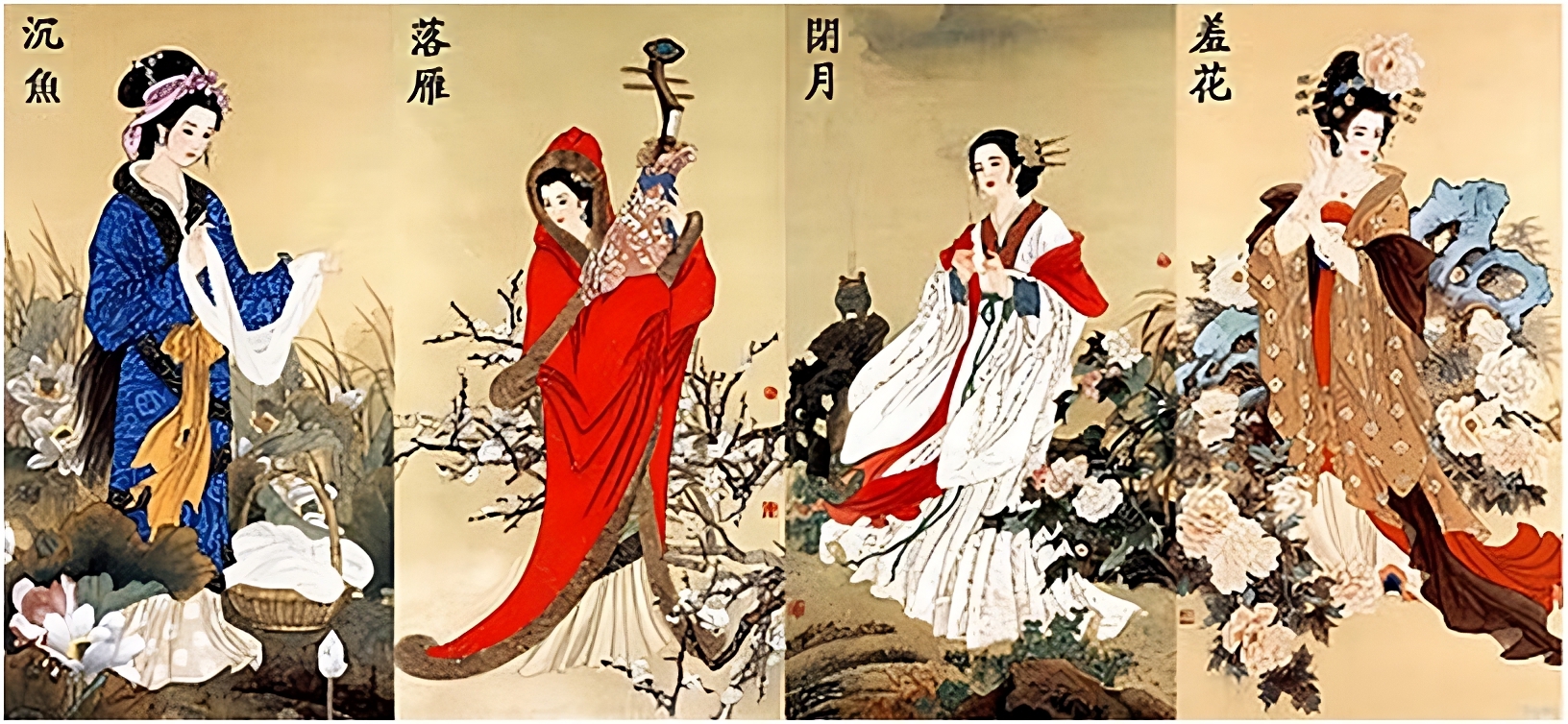If you ever want to compliment a woman’s appearance in Chinese, you have two safest options: cannibalistic 秀色可餐 (literally ‘beautiful to the point of edibility’) and ecocidally apocalyptic 沈魚落雁・閉月羞花 (literally ‘sinks fish, drops geese, shuts the moon, disgraces flowers’).
And as everyone knows, the ecocidally apocalyptic choice is also the most classic one, as it has been distributed between the Four Great Beauties of China·中國四大美人 in the following expression:
昭君落雁
貂蝉閉月
貴妃羞花
(Xi Shi sinks fish, [Wang] Zhaojun drops geese, Diao Chan shuts the moon, [Yang] Guifei disgraces flowers.)

Little did i know that the variation of the later ecocidal expression had not been original creaation, as the similar, yet definitely different quote had been present all this time in the Book of Zhuangzi:
人之所美也
魚見之深入
鳥見之高飛
麋鹿見之決驟
四者孰知天下之正色哉
(Mao Qiang and Li Ji are what people consider beautiful, but if fish see them they will swim into the depths; if birds see them, they will fly away into the air; if deer see them, they will gallop away. Among these four, who knows what is rightly beautiful in the world?)
First of all, we see that very similar metaphors with animals were used to speak about the purported beauty of the two totally different women, obviously famous beauties of Zhuangzi’s time. (Their names have been remembered and can be still used as an idiom for a woman’s beauty in modern Chinese.) So the metaphors were simply repurposed later when the ‘Four Beauties of China’ became established.
Secondly, we can observe that the birds (later respecified as geese) do not fall, but rather fly higher in the sky. Of course, no ecocide was possible in a Taoist text! It was added later, obviously by some people with no regard for Mother Nature. Also, the fish does not ‘sink’ but simply submerges deeper.
Thirdly, it has not been the compliment at all! As we can see, the idea here is that although everyone among humans considered Mao Qiang and Li Ji of utmost beauty, various animals would flee when they saw them. (That ‘but if’ in the translation has been added because of the overall context.) So, it’s not a discussion about female beauty at all, but rather about the relativity of human knowledge, much like the famous ‘happy fish’ story. And if one delved even deeper, it turns out that the topic being discussed is not simply the relativity of knowledge, but even deeper insight into the nature of human knowledge from the Taoist perspective, ‘even not knowing that one does not know’.
In other words, 沈魚落雁 is in fact a complete reversal of the original meaning of the quote, transcendental wisdom that has been misunderstood and repurposed for stupid compliments.